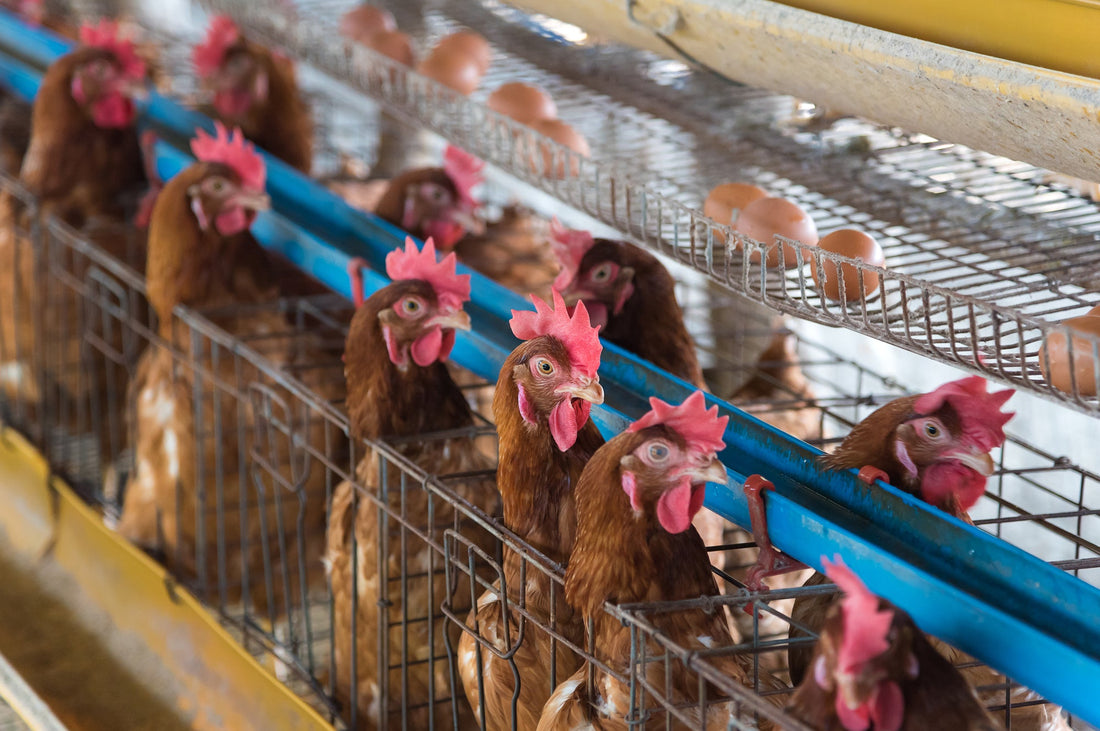In the sprawling expanse of modern agriculture, where efficiency and productivity are often prioritized over the welfare of individual animals, the psychological stress of chickens in factory farms emerges as a pressing, yet frequently overlooked, concern. This article aims to shed light on the mental and emotional struggles faced by these birds, drawing on scientific research and ethical considerations to present a comprehensive overview of the issue.
The Life of a Chicken in a Factory Farm
To fully grasp the psychological stress experienced by chickens, it's crucial to understand the conditions under which they are raised in factory farms. Unlike the pastoral settings one might envision, factory farms are characterized by their intensive animal housing systems, where large numbers of chickens are kept in confined spaces. These environments are designed to maximize production at minimal cost, often at the expense of the animals' well-being.
Broiler chickens, raised for meat, and laying hens, kept for egg production, face different challenges, but both endure environments that can lead to significant stress. Broilers are often crowded into large, windowless barns, with little room to move and perform natural behaviors. Laying hens may be confined to battery cages, small wire enclosures that restrict most physical movement. Such conditions can lead to a host of behavioral and physiological stress responses.
The Science of Stress in Chickens
Chickens, like humans, experience stress when their environment presents challenges that surpass their coping mechanisms. The stress response in chickens involves a complex interplay of hormones, such as cortisol, which can have profound effects on their health and behavior. Prolonged exposure to stressors in factory farms can lead to immunosuppression, making chickens more susceptible to disease, and can also affect their growth and reproductive functions.
Behavioral studies have shown that chickens display a range of stress-related behaviors when kept in intensive farming conditions. These include aggression towards other chickens, feather pecking, and repetitive behaviors known as stereotypies, which are indicative of poor welfare. Furthermore, the lack of environmental enrichment and the inability to engage in natural behaviors, such as dust bathing and foraging, contribute to their psychological distress.
Ethical Considerations and Human Responsibility
The psychological stress of chickens in factory farms raises significant ethical questions about our responsibility towards the animals we rely on for food. It challenges us to consider the moral implications of prioritizing efficiency and economic gain over the well-being of sentient beings. The growing awareness of animal welfare issues has led to calls for more humane farming practices, including the adoption of free-range systems and enriched environments that allow chickens to perform natural behaviors.
Moreover, the stress experienced by chickens in factory farms is not just a concern for the animals themselves. It also has implications for food safety and quality, as stressed animals are more prone to illness, which can affect the products that reach consumers. Thus, improving the welfare of chickens in factory farms is an issue that intersects with public health and ethical consumption.
The Path Forward
Addressing the psychological stress of chickens in factory farms requires a multifaceted approach. It involves not only changing farming practices but also shifting consumer behavior and regulatory standards. There is a growing movement towards more sustainable and humane forms of agriculture, including organic farming and welfare-certified animal products, which offer alternatives to the intensive factory farming model.
Research plays a crucial role in this process, providing evidence-based recommendations for improving the welfare of farm animals. Innovations in farming technology and management practices, such as environmental enrichment and improved housing systems, have the potential to reduce stress and improve the quality of life for chickens.
The plight of chickens in factory farms is a complex issue that encompasses animal welfare, ethics, and sustainability. By exploring the psychological stress experienced by these animals, we gain insights into the broader impacts of intensive farming practices on both animal and human health. As informed citizens and consumers, we have the power to influence change, advocating for policies and practices that prioritize the well-being of all living creatures. In the words of Neil deGrasse Tyson, "The universe is a big place, perhaps the biggest," and within it, our compassion and ethical considerations should extend to the smallest among us, ensuring a kinder, more humane world for chickens and all farm animals.

